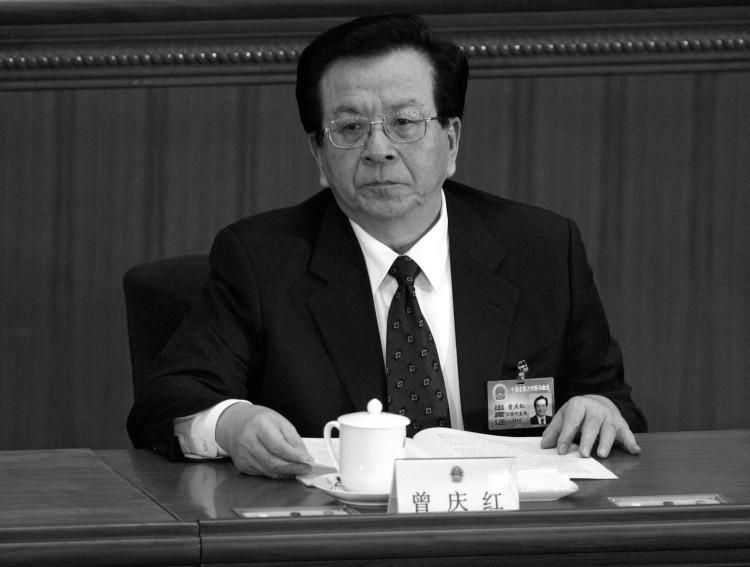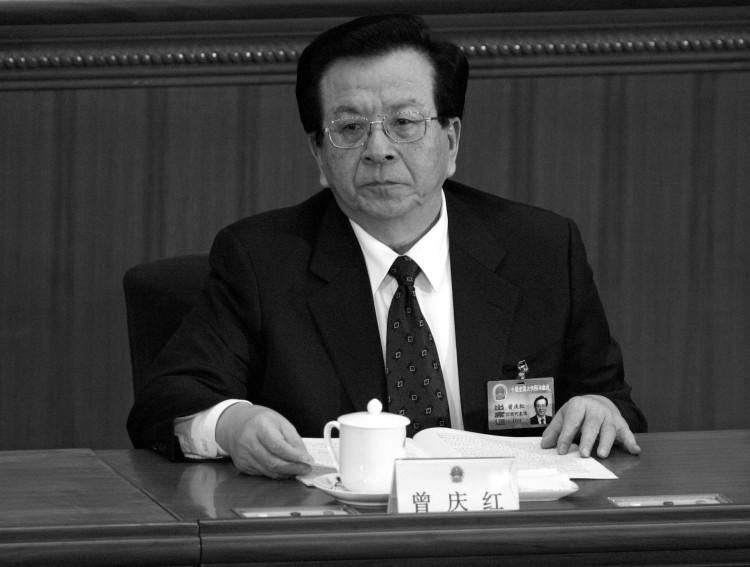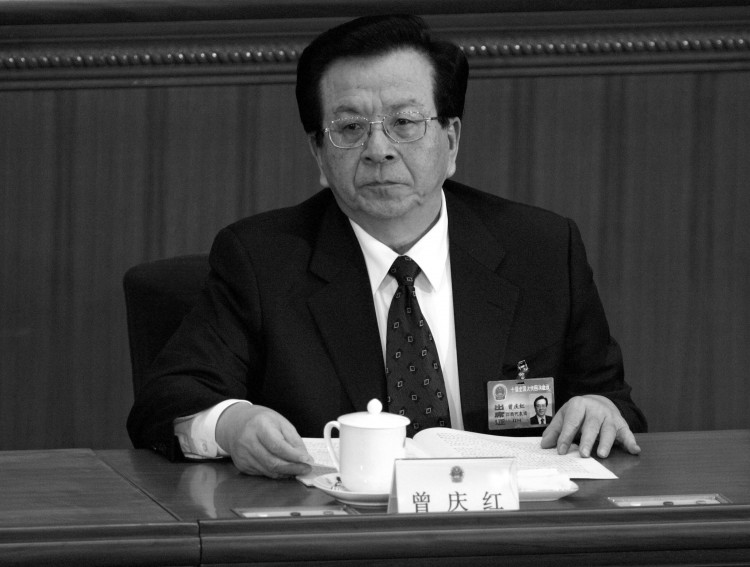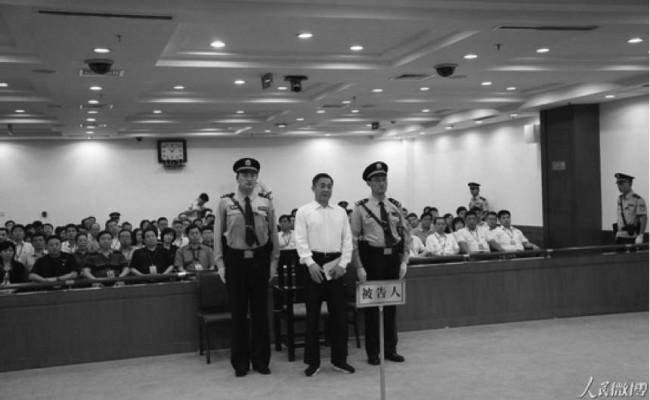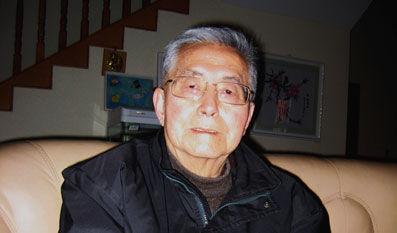Zeng Qinghong had a smooth political career in his early years, because he was a core member of the princeling faction and had help from the colleagues and subordinates of his father Zeng Shan.
Befriending Jiang Zemin, the former regime leader, in 1986, Zeng became vice-secretary in charge of ideology at the Shanghai Municipal Chinese Communist Party (CCP) Committee. During his term in Shanghai, Zeng drafted and polished important documents and propaganda material. He became known as Shanghai Municipal’s no.1 “pen official,” meaning he knew how to write a propaganda article.
Zeng first got Jiang Zemin’s attention while handling a World Economic Herald incident in 1989. The Shanghai-based newspaper was founded in 1980, and had a reputation as one of China’s most liberal newspapers.
According to the book “China’s Princelings,” in April 1989, Director of the Propaganda Department of the Shanghai CCP Committee Chen Zhili saw a news piece in a Hong Kong newspaper that mentioned the World Economic Herald was going to publish “Memo Commemorating the Hu Yaobang Conference.” The article had content supporting the democratic movement in Beijing.
Zeng reported it immediately to Jiang. Jiang ordered Zeng and Chen to talk to Qin Benli, the chief editor of the World Economic Herald. Zeng and Chen asked Qin to delete the content regarding democracy, but Qin refused.
Jiang then called Qin and severely scolded him for violating CCP principles. Shortly afterwards, Jiang sent a “work team” to the World Economic Herald.
Zeng Qinghong was praised by Jiang Zemin for spotting the newspaper’s “problem” at an early stage. The newspaper was later closed by Jiang Zemin and the editor was arrested.
A month later, Jiang became the CCP General Party Secretary. Then Jiang and Li Peng, the former premier who supported the crackdown, co-signed an official appointment to promote Zeng to deputy Director of the CCP Central Committee General Office.
Collecting Dirt
After Zeng’s appointment as Director of CCP Central Committee General Office in 1993, he became involved in all aspects of government affairs, except economic affairs run by the State Council, and military affairs. He became Jiang’s “imperial court butler,” as described in the literature.
According to the book “China’s Princelings,” Zeng, while doing “research and investigation” in collaboration with the National Security Department, quickly gathered evidence of corruption, embezzlement, and bribery against many central and regional officials. This was potent information, making Zeng second only to Jiang. Zeng had information about more than 20 major cases of embezzlement and corruption, which he could use to attack core officials at the State Council and to threaten regional officials. This information was adequate to consolidate Jiang Zemin’s position.
Attacking Huang
According to a high ranking source in Beijing, at the CCP’s 16th National Conference Jiang insisted on increasing the members of the standing committee of the Political Bureau from seven to nine. He wanted a dominant position, with five members in his clique, and four other members, in order to stifle Hu Jintao and make him unable to push policies through. While highlighting Hu’s incompetence, they tried to create an atmosphere favorable for Zeng to replace Hu.
Jiang’s “right arm and left arm” are two cliques. One is stationed in Shanghai, headed by Huang Ju and Chen Liangyu; the other is a princeling faction headed by Zeng in Beijing. Jiang did not anticipate that his “left arm” would cut off his “right arm.”
When Zeng Qinghong was in Shanghai he kept having friction with Huang Ju. After Deng Xiaoping toured southern China to push economic reforms in 1992, local officials in Shanghai, especially Jiang’s clique members Huang Ju and Chen Liangyu, made huge fortunes. Zeng was in Beijing and could only watch with jealousy.
Huang Ju’s sister-in-law (his wife’s younger sister) Yu Liwen monopolized petroleum sales in Shanghai.
Shanghai rights lawyer Zheng Enchong said Yu Liwen controlled 60 gas stations in Shanghai.
“Later, the State Council proposed that Sinopec and China National Petroleum Corporation buy and manage all gas stations in the country including the ones in Shanghai. Sinopec and China National Petroleum Corporation are controlled by Zeng and Zhou Yongkang, because Zeng once was an official in the petroleum industry,” Zheng said.
According to Zheng, Yu Liwen refused to comply because she didn’t want the enormous profits from the business going to Zeng and Zhou.
“Huang’s family was very influential. They rejected the acquisition. Huang’s family controlled the economic lifeline of Shanghai,” Zheng said.
According to the source in Beijing, if the five Jiang faction members in the standing committee had stood together they could have controlled the nine-member committee. Hu Jintao wouldn’t have been able to remove Chen Liangyu or attack Huang Ju. In the end, Zeng’s personal grudge against Huang Ju came before his loyalty to Jiang’s faction, and Zeng supported Hu Jintao in cracking down on Jiang’s clique in Shanghai.
The source also said Zeng’s attack on the Shanghai faction was due to jealousy. Zeng tried to strengthen his own power to intimidate other members in the CCP so that he could enjoy another term after the Party’s 17th National Congress. Zeng’s hand in getting rid of Huang Ju and Chen Liangyu instead scared the other Jiang faction members in the Standing Committee (Wu Bangguo, Jia Qinglin and Li Changchun), and pushed most of the committee members in Jiang’s faction to Hu’s side. That finally led to a majority forcing Zeng to step down at the CCP’s 17th National Congress. This is the main reason behind Zeng’s exit from the Standing Committee of the Politburo in 2007 and later his retirement in early 2008.
Click www.ept.ms/ccp-crisis to read about the most recent developments in the ongoing crisis within the Chinese communist regime. In this special topic, we provide readers with the necessary context to understand the situation. Get the RSS feed. Get the new interactive Timeline of Events. Who are the Major Players? ![]()
Editor’s Note: When Chongqing’s former top cop, Wang Lijun, fled for his life to the U.S. Consulate in Chengdu on Feb. 6, he set in motion a political storm that has not subsided. The battle behind the scenes turns on what stance officials take toward the persecution of Falun Gong. The faction with bloody hands—the officials former CCP head Jiang Zemin promoted in order to carry out the persecution—is seeking to avoid accountability for their crimes and to continue the campaign. Other officials are refusing any longer to participate in the persecution. Events present a clear choice to the officials and citizens of China, as well as people around the world: either support or oppose the persecution of Falun Gong. History will record the choice each person makes.
Read the original Chinese article.
The Epoch Times publishes in 35 countries and in 19 languages. Subscribe to our e-newsletter.
